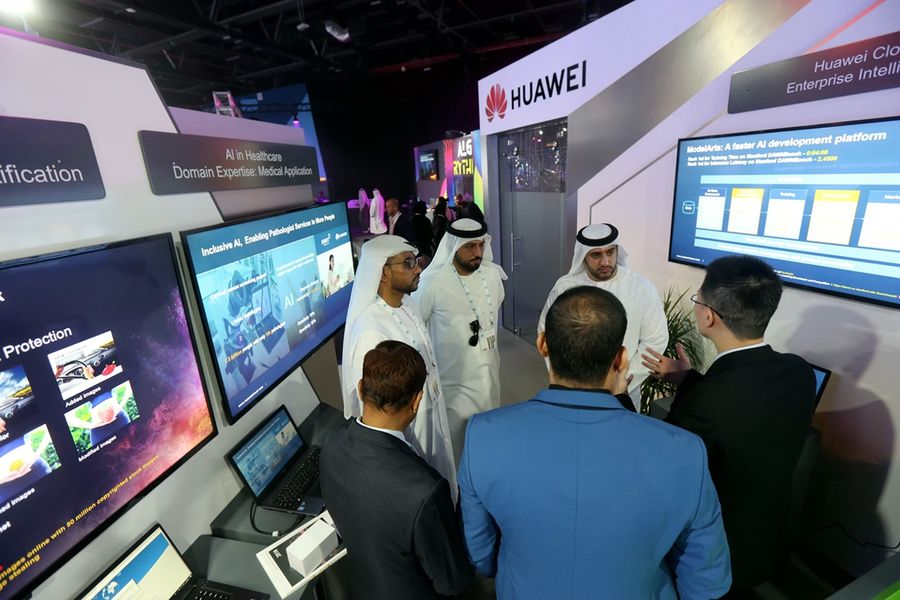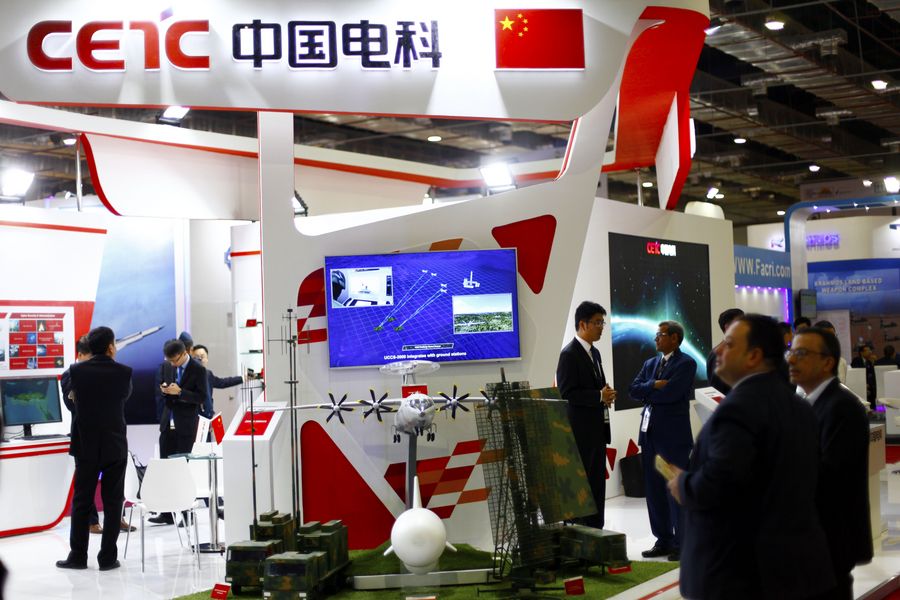
A Foton electric bus is seen in Salam City, east of Cairo, capital of Egypt, on Oct. 29, 2019. (Xinhua/Ahmed Gomaa)
There is "no alternative" to China's investments over the years in many countries in the region, "so if you had to take them away, Middle Eastern or African countries would be in great trouble," said a Turkish expert.
ISTANBUL, June 9 (Xinhua) -- "China offered some good deals in these countries where other nations wouldn't or couldn't, so according to international competition rules and regulations, there's nothing to be surprised about," Selcuk Colakoglu, director of the Ankara-based Turkish Center for Asia-Pacific Studies, told Xinhua in an interview.
In recent years, several Gulf nations have deepened their relations with China and embraced more Chinese investments and contracts. The United Arab Emirates, for example, has signed contracts with Chinese telecommunications company Huawei.

Visitors are seen at the booth of Huawei at the first AI Everything Summit in Dubai, the United Arab Emirates, on May 1, 2019. (Xinhua/Mahmoud Khaled)
Last week, David Schenker, a top official from the U.S. State Department overseeing U.S. policy in the Middle East, warned countries in the region against accepting Chinese "investment, major contracts and infrastructure projects," during an interview with Washington-based think tank the Middle East Institute.
Colakoglu said there is "no alternative" to China's investments over the years in many countries in the region, "so if you had to take them away, Middle Eastern or African countries would be in great trouble."
"Western nations, including the U.S., feel threatened by the rise of the Chinese economy and its progress in the technological field," he said.

Hu Xiaojun (R), general manager of Ningbo A Plus Import and Export Co., Ltd. of China, instructs a worker to produce masks at a factory in the free industrial zone of Cairo, capital of Egypt, April 14, 2020. (Xinhua/Wu Huiwo)
"Cautioning countries about Chinese investment will not help solve the problem," Colakoglu said, calling on China and Western nations to negotiate their differences within the G20 group, warning that otherwise, the global economy would be affected in the post-coronavirus era.
"Washington is afraid of losing influence there (in the Middle East), but on the other hand the U.S. does not offer an alternative economic relationship with these nations, considering the matter from a political competition perspective," he stressed.

Photo taken on Dec. 4, 2018 shows the pavilion of China Electronics Technology Group Corporation (CETC) at Egypt Defence Expo (EDEX) 2018 in Cairo, Egypt. (Xinhua/Ahmed Gomaa)
Noting that China has grown to be an economic juggernaut over the last five years, leading several key manufacturing sectors worldwide, Colakoglu said technological progress was at the core of the strategy China pursues.
"It is only normal that China wants to engage in a strategy to export its technological products overseas. Japan and South Korea did the same thing in the past. There's nothing to be alarmed about by this," he said. ■



